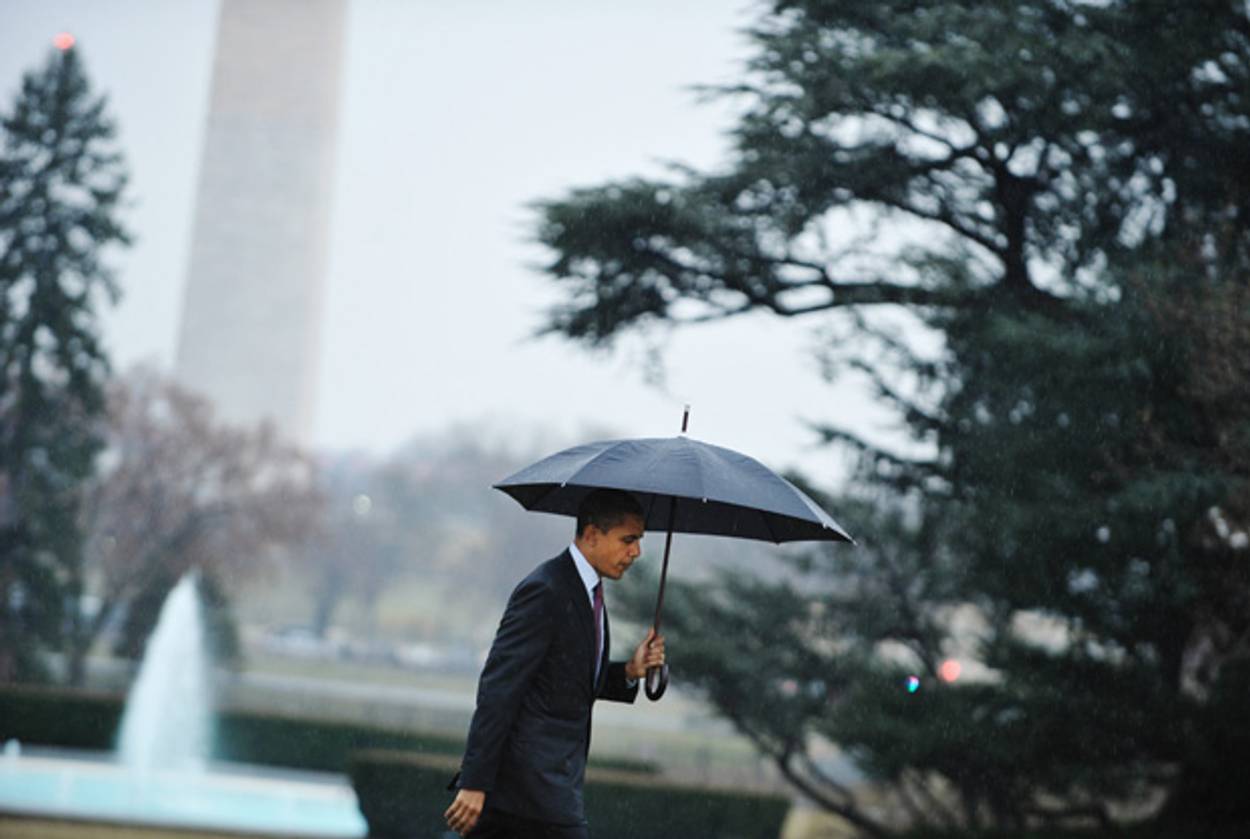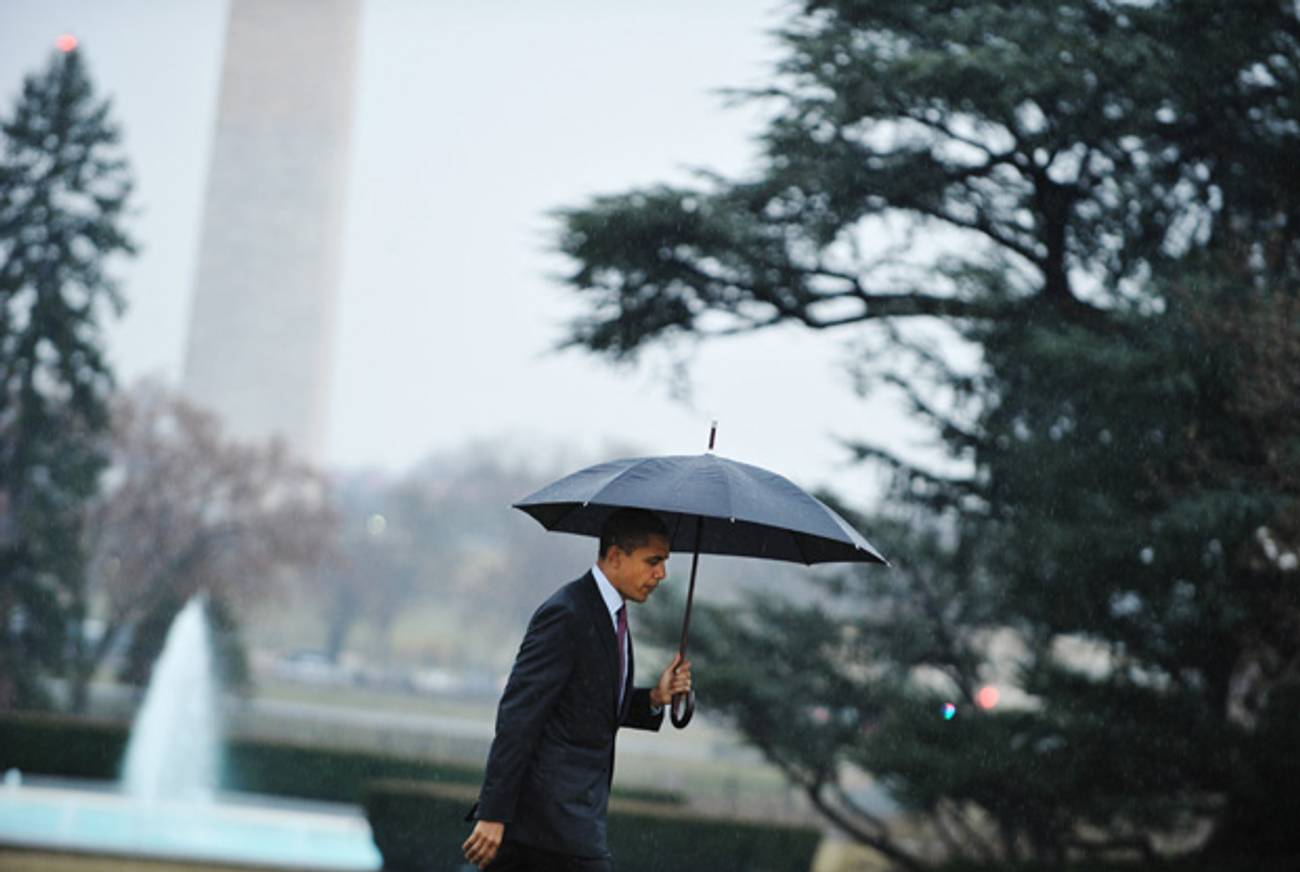AIPAC Urges U.S. Shift to Iranian ‘Capability’
As conference begins, lobby seeks to move U.S. position closer to Israel’s




The New York Times reports that AIPAC, whose annual conference in Washington, D.C., begins this morning, is making an “extraordinary” push to persuade President Obama to articulate specific and stringent red lines for Iran’s nuclear program beyond which the United States would take military action. In its talking points, readily included in the conference media kit, the lobby tells the story of an Iran that has made significant progress toward “the capability to quickly break out and produce nuclear weapons when it desires” and a U.S. that has adopted some necessary sanctions but must still “enhance [a] credible military threat.”
AIPAC is calling on the more than 13,000 conference attendees to ask House members and senators—many of whom will be present at tomorrow night’s “roll call” and be lobbied Tuesday on Capitol Hill—to support a bipartisan Senate resolution that would put them on the record opposing containment of an Iran with a “nuclear weapons capability.” Neither AIPAC nor the resolution allege that Iran has decided to build a nuclear weapon—and available intelligence suggests that decision hasn’t been made. Instead, they argue that Iranian capability—on the model of, say, Japan, which has all the elements in place so that it could produce a nuclear bomb within a year if it wanted—is still unacceptable. “If Iran achieves the status of a ‘threshold’ nuclear state,” the talking points declare, “it will enjoy virtually the same benefits as if it actually possessed nuclear weapons.”
The cover of the brochure that is the first thing you see when you open the media kit says it all: “Iranian Nuclear Weapons Capability: Unacceptable.”
If this became U.S. policy, it would bring its position closer to Israel’s. It might constitute the new “red line” that Prime Minister Netanyahu will seek tomorrow when he meets with President Obama at the White House. In January, Ronen Bergman reported that while the U.S. has shifted from speaking of “threshold prevention” to “weapons prevention,” Israel remains focused on the former.
In an interview Friday with Tablet Magazine contributing editor Jeffrey Goldberg, Obama reiterated, “It is unacceptable for Iran to have a nuclear weapon,” but did not specify how he felt about the capability. In pushing for diplomacy and in his administration’s discouragement of an Israeli strike at this time, Iranian capability, in the context of inspectors in the country and a diplomatic track, seems like something the administration could live with, and it’s not something it’s ruled out.
Some commentators, including Colin Kahl, recently of the Defense Department, have argued that an Iran with a so-called “virtual program” could be contained and that such a scenario is preferable to a U.S. or Israeli strike at the present moment.
Aggressive estimates state that if Iran’s supreme leader decided to build a bomb tomorrow, it would be more than a year before the country had a workable one and perhaps several more before it could be fitted to a missile; and it’s highly likely that the international community would catch wind of it. However, that timeline is expected to shrink, and there is also the concern that Iran could deliver a nuclear device through one of its proxies, like Hezbollah.
Notably, Israel is hardly mentioned in AIPAC’s Iran talking points. Instead, capability is framed as “A Threat to U.S. National Security.” Here, the group echoes Obama, who told Goldberg, “When we travel around the world and make presentations about this issue … we frame it as: this is something in the national-security interests of the United States and in the interests of the world community.”
Sen. Joseph Lieberman, Independent of Connecticut, who was one of three senators to introduce the resolution, will address the entire conference tomorrow morning.
AIPAC’s other two primary talking points, to “Enhance U.S.-Israel Security Cooperation” and “Support Security Assistance to Israel,” are far less controversial.
AIPAC does not call for the U.S. to make it a precondition of negotiations that Iran shut down its enrichment of uranium to 20 percent and removee all enriched uranium from the country. The Times identifies this as another sticking point between Netanyahu and Obama: the former has demanded it; the latter reportedly believes that Iran will never agree to talks under those conditions—that rather, those are chips to be bargained for in the course of talks.
So far, Iran has made only cursory offers of negotiations, not really taken seriously by either the U.S. or the European Union.
U.S. Backers of Israel Pressure Obama Over Policy on Iran [NYT]
Related: Will Israel Attack Iran? [NYT Magazine]
32 Senators Call for ‘No Containment’ Strategy for Iran [FP The Cable]
Obama to Iran and Israel: ‘As President of the United States, I Don’t Bluff’ [Atlantic Goldblog]
Earlier: How Do You Solve a Problem Like Iran?
Marc Tracy is a staff writer at The New Republic, and was previously a staff writer at Tablet. He tweets @marcatracy.